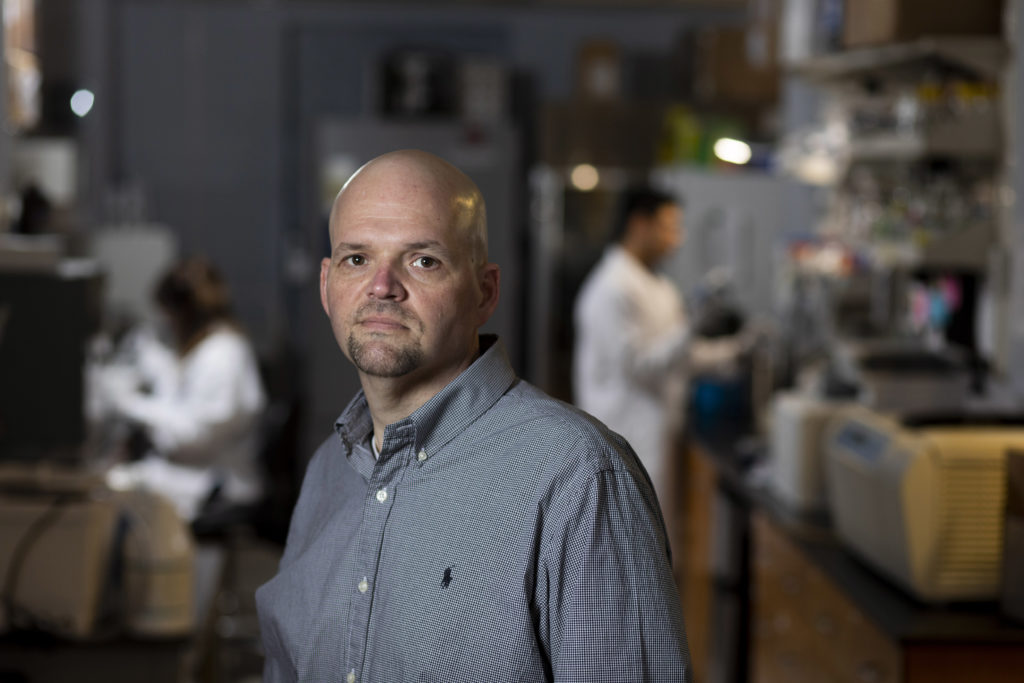
Before the COVID-19 pandemic hit, antibiotic resistance was turning minor infections into life-threatening emergencies. Stephen Trent, a University of Georgia researcher and antibiotic expert, said the pandemic could be adding fuel to the fire.
The CDC calls antibiotic resistance one of its top public health concerns, killing tens of thousands in the U.S. and more than 700,000 people worldwide each year. Reports from the United Nations predict that by 2050, 10 million people will die from antibiotic-resistant bacterial infections each year if nothing is done to stop the crisis.
“In the clinic, we have two pandemics going on at the same time,” said Trent, a UGA Foundation Distinguished Professor in the College of Veterinary Medicine. “We already had a global pandemic with antibiotic/antimicrobial resistance. There’s no doubt about that. Because of COVID, we’re giving a lot more patients antibiotics. We’re already seeing that we’re pushing the multidrug resistance problem and making that pandemic worse because we have to treat all of these people.”
Desperate measures
But with the onset of the coronavirus, health care professionals have become desperate to stave off secondary bacterial infections that often occur when patients are in hospitals for long periods of time. The lack of effective treatments for COVID also prompted many providers to prescribe antibiotics in a last-ditch effort to save their lives, even when there was no detectable bacterial infection for the drugs to fight.
“If you’re an antibiotic researcher, you never, ever want someone getting an antibiotic without cause,” Trent said. “When you’re pushing antibiotics in people even if they have COVID and there’s no good reason to do that, you’re asking for trouble.”
Even before the pandemic, researchers were urging health care providers to assess whether a patient really needed antibiotics before prescribing them. But antibiotics had been the standard course of action in medicine for decades, and it’s proven a harder practice to overcome than expected.
The more exposure to antibiotics bacteria gets, the quicker it can evolve to overcome the drugs commonly used to treat it. Once it becomes resistant to common antibiotics, health care providers have limited options. And that means something as seemingly minor as a urinary tract infection can turn deadly.
Secondary infections put doctors in a bind
The average COVID-19 patient is in the hospital for at least a week, and many end up on ventilators, exponentially upping their chances of developing a secondary bacterial infection on top of the coronavirus. Preliminary reports from China are estimating that about half the patients who die from COVID-19 had secondary infections.
“There is no doubt that there are more infections occurring in hospitals that are bacterial-based because of COVID,” Trent said. “There’s no doubt that it increases antibiotic use. And there’s no doubt that that is going to be a major problem worsening the antibiotic resistance problem we already have.”
